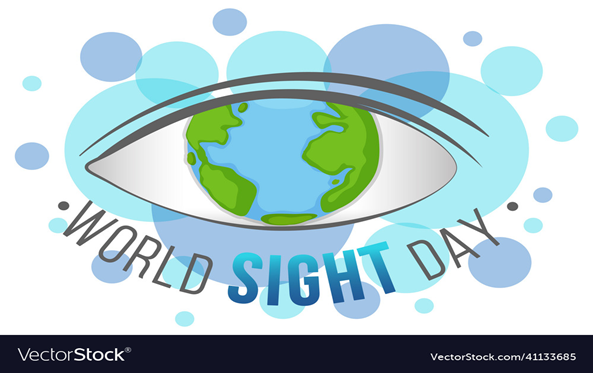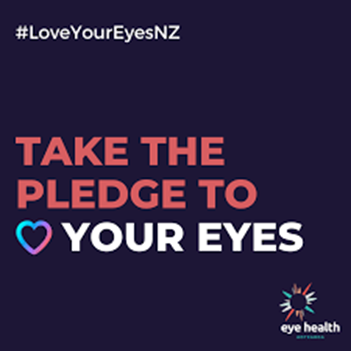We all start our week by lamenting the so-called 'Monday Blues' and stressing about our pending work. Many of us overlook the luxuries we own and curse the life we lead; we never take the time to step into someone else's shoes and live life from their perspective. Life is as appalling as it is enchanting and as unfair as it is beautiful. From time to time, we have all questioned our fate and wondered, “Why me?" At some point in life, we all stumble on a rock, struggle to rise, and conclude that 'nothing good can ever happen in my life.’ But have we ever paused to count all the 'good things' that have already happened to us?
The purpose of this blog is not to make you feel guilty but to make you realize that, in many ways, you are in a better position than someone else. At the same time, it highlights a global initiative by WHO and Lions Club International. While the previous blog focused on the 'Leading Ladies' of the film industry, this blog sheds light on the 'leading characters' of life.
Whenever I am worn out by the chaos of life, all I want is to witness a sunset or sunrise, to experience the serenity that life offers. Sometimes, the beauty of the world leaves us in awe. But what about those who can never witness this beauty? What about the people who have lost their sight—the very thing we often take for granted? Take a moment and reflect on all the things you yearn for and all the things you take for granted. Step into their shoes and feel the difference.
जिंदगी की गलियों में खो गई थी मैं,
पल भर के अंधेरे से सहम गई थी मैं।
रोशनी को मैंने तलाशना चाहा,
लेकिन सवेरे में भी अंधेरा पाया।
फिर अचानक, एक ऐसे शख्स से मेरी मुलाकात हुई,
जिसके जिंदगी से रोशनी ने हमेशा के लिए मुंह मोड़ लिया,
पर उम्मीद की डोर को उसने थामे रखा।
तब जिंदगी की हकीकत से, मैं रूबरू हुई...
When I met my visually impaired classmate for the first time, I realized how trivial most of my problems were—problems that can eventually be solved. The beautiful sky, colorful butterflies, the peace of reading a book, watching a movie, traveling freely—everything we take for granted was taken from him in the blink of an eye. Every time I thought about him, one question haunted me: 'Is he not just a victim of fate?' Eventually, I came to realize that life is unfair, but bouncing back from adversity is what makes it beautiful. As we became friends, I realized how important ‘disability sensitization’ is in our society. Initially, I didn’t know how to start a conversation with him apart from studies. But gradually I realized how he’s just like us, but has a steeper mountain to climb. He doesn’t really appreciate the help that comes when it is not asked for. Because, when you help someone, when they don’t need it, your actions are telling them they are not capable of doing the task on their own, which is not true. Knowingly or unknowingly, we create a discouraging environment for visually impaired people. It is important to understand their needs, listen to their experiences and make an effort to create an inclusive world for everyone. The resilience of people suffering from visually impairment is unmatched, but their life would have been different if they never lost their sight…
Approximately 90% of people with vision loss could have
their sight restored. To raise awareness about this, the second Thursday of
every October is celebrated as 'World Sight Day.' In 1986, Lions Club
International launched the SightFirst Campaign, and in 1999, it partnered with
the WHO. The campaign aims to raise awareness about visual impairment and
promote eye health and vision care. Its key activities revolve around
fundraising, educational programs, and various initiatives.
The SightFirst Campaign aims to create awareness about eye health and strengthen the eye care systems in underprivileged communities. It provides high-quality eye care services and rehabilitation to people suffering from irreversible blindness. It also trains the local personnel to provide quality eye care facilities at an effective cost. Since the past few years, the ease of ‘working from home’ has severely affected the eye health of people across the globe. Thus, it is also important to create awareness in the workplace about reducing the screen time and taking adequate breaks. They also spread this awareness among kids and encourage them to go outdoors and play, instead of sticking to their mobile phones. It is also important to help children overcome the social stigma associated with wearing spectacles and taking the corrective measures. Some simple measures to improve eye health include eating a balanced diet, washing hands before touching your eyes, and getting an eye checkup every 2 years. Such simple steps will help us to protect and improve our eye health.
The world needs more initiatives of this kind; because there are people who lose their sight because they cannot afford the treatment of cataracts, trachoma, or eye injuries. Many more succumb to partial visual impairment due to inaccessibility to spectacles. Campaigns like the SightFirst play an important role in creating awareness about the importance of having affordable eye care especially, to the disadvantaged sections of society. This day is also a reminder to register ourselves for organ donation. Imagine departing the world by bringing colors in the life of someone, who spent most or all of their life in darkness…
This year, the theme is ‘Love Your Eyes.’ We admire the
beautiful scenery around us, but we rarely acknowledge how blessed we are to
have the sight that allows us to appreciate this beauty. The theme encourages us to be grateful for our eyes and raises awareness about the
importance of taking care of them. This World Sight Day, let's take steps to
improve our eye health and take a moment to appreciate the resilience of those
who have lost their sight, yet keep faith in their vision…
Volunteer, AICUF Editorial Committee



Soo enlightening ✨
ReplyDelete